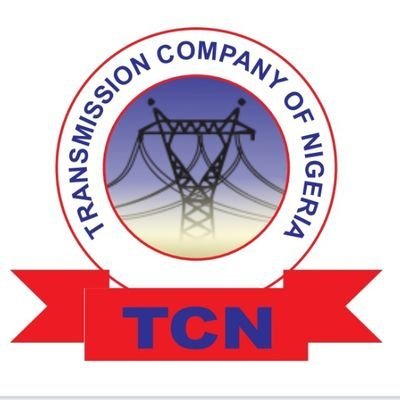Looking for reliable power transmission solutions in Nigeria? Look no further than TCN Nigeria. With its cutting-edge technology and commitment to efficiency, TCN Nigeria stands out as a leader in the industry. Serving as the backbone of the country’s electricity grid, TCN Nigeria plays a vital role in ensuring seamless power distribution nationwide. Discover how TCN Nigeria is revolutionizing the energy sector and powering the nation forward.
Unlocking the Power of TCN Nigeria: A Comprehensive Guide
Welcome to our ultimate guide to TCN Nigeria, where we delve deep into the world of Transmission Company of Nigeria (TCN) and its vital role in the country’s energy sector. Whether you’re a student curious about how electricity is transmitted across Nigeria or an enthusiast wanting to understand the inner workings of power distribution, this article is here to demystify the complexities and highlight the importance of TCN Nigeria.
The Basics of TCN Nigeria
First things first, let’s break down what TCN Nigeria is all about. The Transmission Company of Nigeria, commonly known as TCN, is a government-owned company responsible for transmitting electricity generated by power stations to distribution companies (DisCos) across the country. In simpler terms, TCN acts as the backbone of Nigeria’s power supply system, ensuring that electricity reaches our homes, schools, hospitals, and businesses.
The Role of TCN in Power Transmission
Imagine TCN as a giant conductor, orchestrating the flow of electricity from where it is generated to where it is needed. The process starts at power stations, where electricity is produced through various sources such as hydroelectric dams, gas-fired plants, and solar farms. Once the electricity is generated, TCN steps in to transmit this power through a network of high-voltage transmission lines and substations.
These transmission lines act like highways for electricity, carrying it across long distances without losing much energy. This is crucial because Nigeria’s power stations are often located far away from major cities and industrial hubs. Without TCN’s transmission network, it would be impossible to transport this electricity efficiently and reliably to end-users.
The Challenges and Innovations in Power Transmission
Despite its critical role, TCN Nigeria faces numerous challenges in ensuring a stable and reliable power supply across the country. One of the major hurdles is the outdated infrastructure, which leads to transmission losses and inefficiencies. Over the years, TCN has been investing in modernizing its grid infrastructure, adopting smart technologies and practices to enhance the efficiency of power transmission.
Another challenge is the issue of power theft and vandalism, which not only disrupts the transmission process but also poses safety risks. TCN has been working closely with law enforcement agencies to crack down on these illegal activities and safeguard its transmission assets. Additionally, the company has been exploring innovative solutions such as drone surveillance and remote monitoring to enhance security and prevent disruptions in power transmission.
The Impact of TCN on Nigeria’s Energy Sector
TCN Nigeria plays a pivotal role in shaping the energy landscape of the country. By ensuring the smooth transmission of electricity, TCN contributes to economic development, industrial growth, and overall quality of life for Nigerian citizens. Reliable power transmission is essential for powering industries, attracting investments, and improving essential services such as healthcare and education.
Empowering Rural Communities
One of the significant impacts of TCN’s work is felt in rural communities that are often underserved in terms of electricity access. Through its transmission network expansion projects, TCN has been extending power lines to remote areas, bringing electricity to homes and businesses that were previously off the grid. This electrification drive has a transformative effect on rural livelihoods, opening up new opportunities for economic growth and social development.
Supporting Renewable Energy Integration
With the global shift towards renewable energy sources, TCN Nigeria plays a crucial role in integrating solar, wind, and other clean energy technologies into the national grid. By connecting renewable energy projects to its transmission network, TCN enables a greener and more sustainable energy mix for Nigeria. This not only reduces the country’s carbon footprint but also ensures energy security and resilience in the face of climate change.
The Future of TCN Nigeria: Innovations and Sustainability
As Nigeria continues to grow and modernize, the role of TCN in ensuring a reliable and sustainable power supply becomes even more critical. Looking ahead, TCN is focusing on adopting cutting-edge technologies, enhancing grid resilience, and promoting energy efficiency across its operations. The company is also exploring partnerships with private sector players to drive innovations and investments in the energy sector.
Smart Grid Technologies
One of the key areas of innovation for TCN is the adoption of smart grid technologies, including advanced metering systems, grid automation, and predictive maintenance tools. These technologies enable real-time monitoring and control of the transmission network, optimizing power flow, reducing outages, and improving overall system performance. By embracing smart grid solutions, TCN is laying the groundwork for a more efficient and reliable power transmission network.
Sustainability Initiatives
In line with global sustainability goals, TCN Nigeria is ramping up its efforts to reduce carbon emissions and promote environmental stewardship. The company is exploring opportunities to integrate energy storage systems, enhance grid flexibility, and promote energy conservation measures. By prioritizing sustainability in its operations, TCN is not only contributing to a cleaner environment but also setting a positive example for the energy sector in Nigeria.
Conclusion: Powering Nigeria’s Future with TCN
In conclusion, TCN Nigeria serves as the linchpin of the country’s energy infrastructure, enabling the seamless transmission of electricity from generation sources to end-users. Despite the challenges it faces, TCN remains committed to driving innovation, sustainability, and reliability in power transmission. As Nigeria strives towards a brighter, electrified future, TCN’s role will continue to be instrumental in shaping the energy sector and empowering communities nationwide.
Thank you for joining us on this journey through the world of TCN Nigeria. We hope this guide has provided valuable insights into the importance and impact of TCN in Nigeria’s energy landscape. Stay tuned for more exciting updates and stories from the dynamic world of power transmission!
TCN POWER CIRCUIT EPISODE 263 (TWO HUNDRED AND SIXTY-THREE) 2025
Frequently Asked Questions
What services does TCN Nigeria provide?
TCN Nigeria, also known as Transmission Company of Nigeria, is responsible for transmitting and wheeling electricity across the country. Their primary role is to ensure the reliable transmission of electricity from power generating companies to distribution companies nationwide.
How does TCN Nigeria contribute to the power sector in Nigeria?
TCN Nigeria plays a crucial role in the power sector by operating and maintaining the national grid infrastructure. By efficiently transmitting electricity, TCN helps to stabilize the power supply and support economic activities in the country.
What are the challenges faced by TCN Nigeria in fulfilling its mandate?
TCN Nigeria faces challenges such as inadequate funding, aging infrastructure, and technical constraints. These challenges often impact the efficiency and reliability of electricity transmission, requiring ongoing investment and upgrades.
Final Thoughts
In conclusion, TCN Nigeria plays a vital role in ensuring reliable electricity transmission across the country. By maintaining and upgrading infrastructure, TCN Nigeria helps enhance power distribution efficiency. With ongoing projects to expand capacity, TCN Nigeria is committed to meeting the nation’s growing electricity demands. A reliable and efficient transmission network is crucial for supporting economic growth and improving the quality of life for Nigerians.


